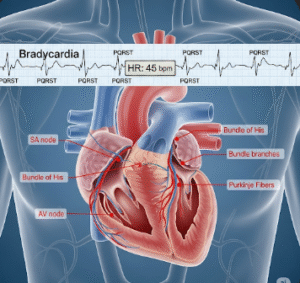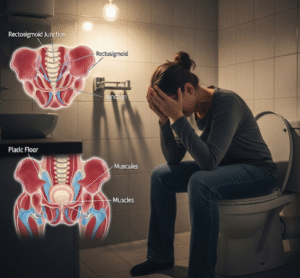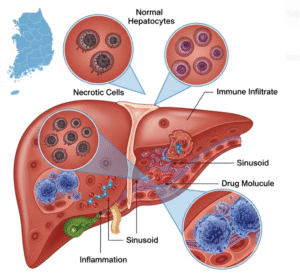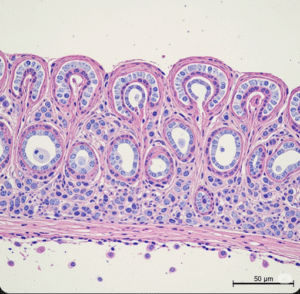Overview
Irritable Bowel Syndrome (IBS) is a common functional gastrointestinal disorder characterized by chronic abdominal pain, bloating, and altered bowel habits without any identifiable structural or biochemical abnormalities. It affects millions worldwide and significantly impacts quality of life. In Korea, awareness of IBS is growing, and medical centers offer a combination of lifestyle, dietary modifications, and advanced medical therapies to manage symptoms and improve patients’ wellbeing.
What Is Irritable Bowel Syndrome?
IBS is a disorder of gut-brain interaction where the digestive system shows abnormal sensitivity and motility. It is diagnosed based on symptom criteria (such as the Rome IV criteria) after excluding other organic diseases. IBS is classified into subtypes depending on predominant bowel patterns: IBS with constipation (IBS-C), IBS with diarrhea (IBS-D), mixed IBS (IBS-M), and unclassified IBS.
Symptoms
- Recurrent abdominal pain or discomfort related to defecation
- Changes in stool frequency and form (diarrhea, constipation, or both)
- Bloating and abdominal distension
- Urgency or feeling of incomplete evacuation
- Mucus in stool
- Symptoms often worsen during stress or after certain foods
Causes
The exact cause of IBS is unknown, but multiple factors contribute:
- Abnormal gastrointestinal motility and visceral hypersensitivity
- Altered gut microbiota and immune activation
- Brain-gut axis dysfunction affecting gut sensation and motility
- Post-infectious changes following gastrointestinal infections
- Psychological stress and anxiety influencing symptoms
Risk Factors
- Female gender, with higher prevalence among women
- Age under 50 years, though IBS can occur at any age
- History of gastrointestinal infections
- High stress or anxiety levels
- Certain dietary triggers, such as high-fat foods, caffeine, or fermentable carbohydrates (FODMAPs)
Complications
- Chronic symptoms leading to reduced quality of life
- Social and occupational impairment due to unpredictable bowel habits
- Nutritional deficiencies if restrictive diets are followed without guidance
- Increased healthcare utilization and associated costs
- Coexisting mental health disorders such as anxiety and depression
Prevention
- Maintaining a balanced diet and avoiding known food triggers
- Regular physical activity to promote healthy bowel function
- Stress management through relaxation techniques or therapy
- Adequate hydration and fiber intake adjusted to individual tolerance
- Early medical consultation for persistent gastrointestinal symptoms
Treatment Options in Korea
Korean healthcare providers offer a multidisciplinary approach for IBS management:
- Dietary Modifications:
- Low FODMAP diet under dietitian guidance to reduce fermentable carbohydrate intake
- Avoidance of caffeine, alcohol, and spicy foods
- Tailored fiber supplementation depending on IBS subtype
- Medications:
- Antispasmodics to reduce abdominal cramping
- Laxatives for constipation-predominant IBS
- Antidiarrheals for diarrhea-predominant IBS
- Probiotics to modulate gut microbiota
- Low-dose antidepressants to modulate gut-brain axis and reduce pain
- Psychological Therapies:
- Cognitive Behavioral Therapy (CBT) to manage stress and symptom perception
- Gut-directed hypnotherapy and relaxation techniques
- Complementary Treatments:
- Acupuncture and herbal medicine as adjunct therapies
- Patient Education and Support:
- Counseling on symptom management and lifestyle adaptation
- Support groups for sharing experiences and coping strategies
Korea’s integrative healthcare model combines conventional medicine with traditional approaches, optimizing IBS symptom control and improving patient quality of life.













